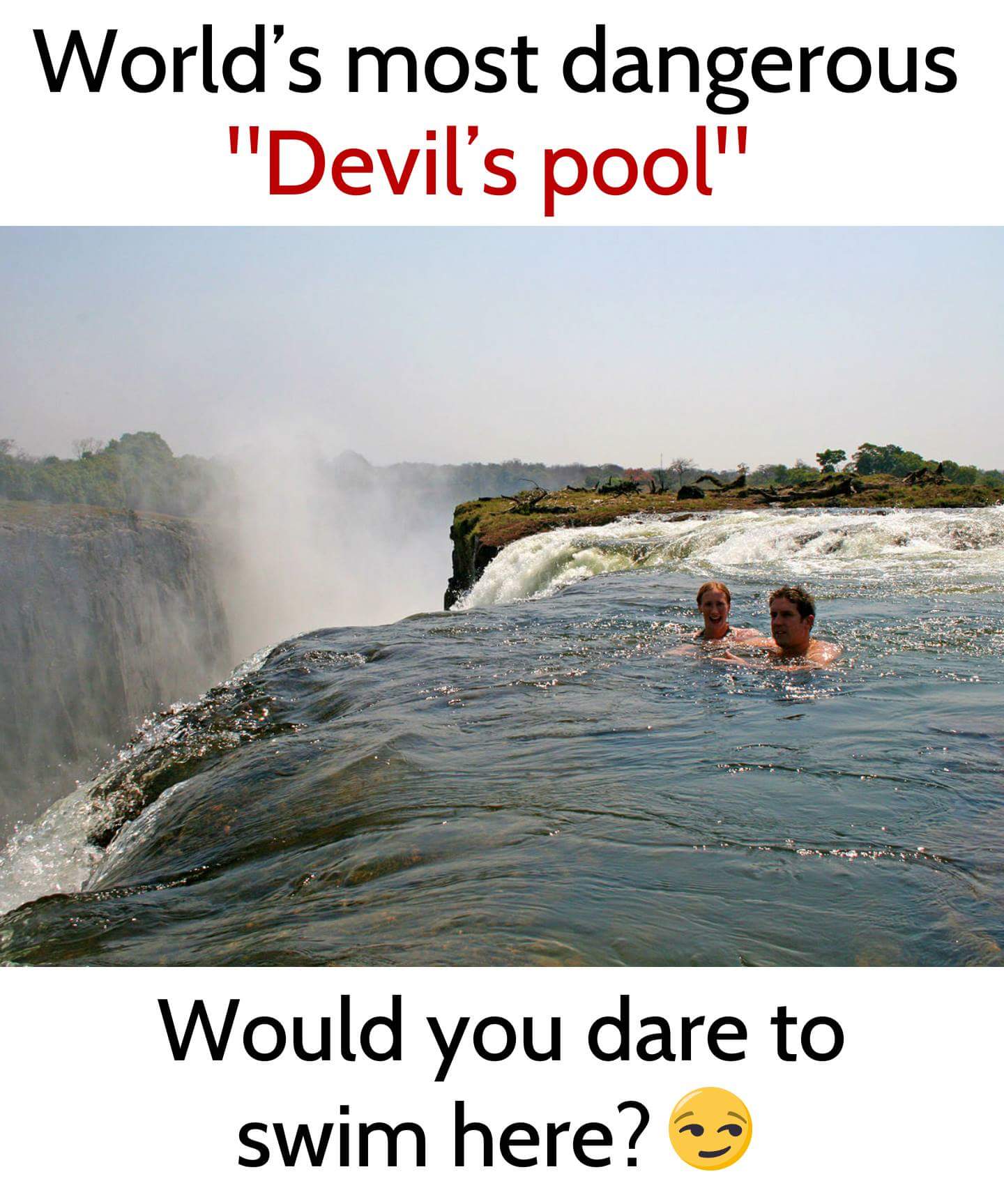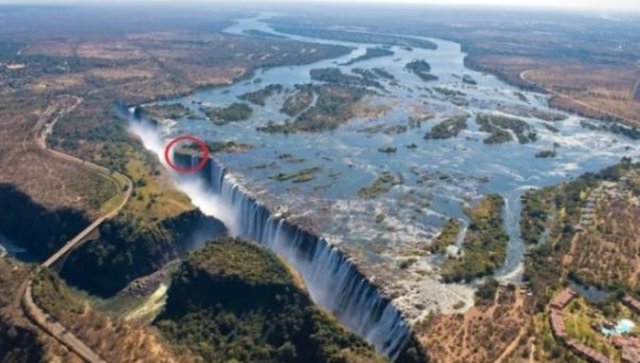World's most dangerous 'Devil's pool'

Victoria Falls is one of the seven natural wonders of the world
Devil's Pool is adjacent to the famous Livingstone Island situated on the edge of the Victoria Falls.
Victoria Falls is a waterfall in southern Africa on the Zambezi River at the border between Zambia and Zimbabwe. It has been described by CNN as one of the Seven Natural Wonders of the world.
David Livingstone, the Scottish missionary and explorer, is believed to have been the first European to view Victoria Falls on 16 November 1855, from what is now known as Livingstone Island, one of two land masses in the middle of the river, immediately upstream from the falls near the Zambian shore. Livingstone named his discovery in honour ofQueen Victoria of Britain, but the indigenousTonga name, Mosi-oa-Tunya—"The Smoke That Thunders"—continues in common usage as well. The World Heritage List officially recognizes both names.
The nearby national park in Zambia is named Mosi-oa-Tunya, whereas the national park and town on the Zimbabwean shore are both named Victoria Falls.
Victoria Falls is classified as the largest, based on its combined width of 1,708 metres.
is roughly twice the height of North America's Niagara Falls and well over twice the width of its Horseshoe Falls. In height and width Victoria Falls is rivalled only by Argentina and Brazil's Iguazu Falls.

Riverine forest with palm trees lines the banks and islands above the falls. The most notable aspect of the area's vegetation though is the rainforest nurtured by the spray from the falls, containing plants rare for the area such as pod mahogany,ebony, ivory palm, wild date palm and a number of creepers and lianas.
Vegetation has suffered in recent droughts, and so have the animals that depend on it, particularly antelope.
The national parks contain abundant wildlife including sizable populations of elephant,buffalo, giraffe, Grant's zebra, and a variety ofantelope. Katanga lions, African leopards andSouth African cheetahs are only occasionally seen. Vervet monkeys and baboons are common. The river above the falls contains large populations of hippopotamus andcrocodile. African bush elephants cross the river in the dry season at particular crossing points.
The river is home to 39 species of fish below the falls and 89 species above it. This illustrates the effectiveness of the falls as a dividing barrier between the upper and lower Zambezi.
According to me it is a wonderful place to see and and enjoy.